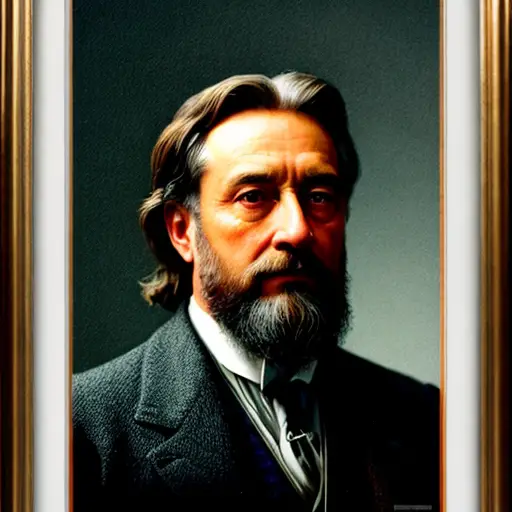Unveiling the Past: Exploring Historical Events through Documented Accounts
Unveiling the past through documented accounts allows us to delve into the intricate connections between historical events, the documents that record them, and the philosophers who interpret them. By examining primary sources such as letters, diaries, and official records, we can gain valuable insights into the motivations and perspectives of key figures in history. Philosophers play a crucial role in analyzing and contextualizing these documents, offering interpretations that shed light on the broader implications of past events. Through this exploration, we can better understand the link between historical events, documents, and the philosophical frameworks that shape our understanding of the past.
The Power of the Pen: How Historical Documents Shape Our Understanding of the Past
One interesting fact is that the historical event known as the French Revolution had a profound impact on the field of philosophy and the creation of important documents. The French Revolution, which took place from 1789 to 1799, was a period of radical social and political upheaval in France, leading to the overthrow of the monarchy and the rise of the French Republic. During this time, philosophers such as Jean-Jacques Rousseau and Voltaire, who had previously influenced Enlightenment thinking, played a significant role in shaping the revolutionary ideals. Their ideas of individual rights, equality, and the social contract heavily influenced the revolutionaries and the subsequent documents that emerged. One of the most notable documents that emerged from the French Revolution was the Declaration of the Rights of Man and of the Citizen, adopted in 1789. This document, heavily influenced by Enlightenment philosophy, proclaimed the fundamental rights and freedoms of individuals, including liberty, property, and resistance to oppression. It became a cornerstone of modern human rights and influenced subsequent declarations and constitutions worldwide. Furthermore, the French Revolution also led to the establishment of the Committee of Public Safety, which was responsible for governing France during the most radical phase of the revolution. This committee, led by Maximilien Robespierre, implemented a policy known as the Reign of Terror, which aimed to suppress counter-revolutionary activities. However, this period also saw the rise of political factions and internal conflicts, ultimately leading to Robespierre's downfall and the end of the Reign of Terror. Overall, the French Revolution not only brought about significant political and social changes but also served as a catalyst for the development of important philosophical ideas and the creation of influential documents that continue to shape our understanding of human rights and governance today.
Historical documents hold a unique power in shaping our understanding of the past, as they provide firsthand accounts of significant events and the individuals involved. Through the meticulous analysis of these documents, historians and philosophers can uncover hidden truths, challenge existing narratives, and offer new perspectives on historical events. By critically examining the context, biases, and implications of these documents, we can gain a deeper appreciation for the complexities of history and the role that written records play in shaping our collective memory. The interplay between historical events, documents, and philosophical interpretations highlights the dynamic nature of historical inquiry and the ongoing quest for truth in the study of the past.
Philosophers as Witnesses: Examining the Influence of Thinkers on Historical Events

Philosophers have long been regarded as witnesses to historical events, offering unique perspectives and insights that shape our understanding of the past. Through their writings and reflections, philosophers have played a crucial role in interpreting and contextualizing significant events, providing intellectual frameworks that help us make sense of the complexities of history. From ancient thinkers like Plato and Aristotle to modern philosophers such as Michel Foucault and Hannah Arendt, these individuals have left behind a rich legacy of ideas that continue to influence our understanding of historical events.
One of the key contributions of philosophers to the study of history is their ability to critically analyze and interpret historical documents. By applying philosophical concepts and methodologies to primary sources, philosophers can uncover hidden meanings, challenge prevailing interpretations, and offer new insights into the motivations and implications of past events. Through this process of philosophical inquiry, historians and scholars can gain a deeper appreciation for the complexities of history and the ways in which individuals and societies have shaped and been shaped by the events of the past.
Moreover, philosophers serve as moral and ethical witnesses to historical events, providing valuable perspectives on the ethical dilemmas and moral implications of past actions. Through their reflections on issues such as justice, power, and human nature, philosophers can help us navigate the ethical complexities of history and consider the broader implications of past events for our present and future. By engaging with the philosophical reflections of thinkers from different time periods and cultural contexts, we can gain a more nuanced understanding of the ethical dimensions of historical events and the ways in which moral considerations have shaped human actions throughout history.
In addition to their role as interpreters and ethical guides, philosophers also serve as provocateurs and challengers of established narratives. By questioning prevailing assumptions, challenging conventional wisdom, and offering alternative perspectives, philosophers can disrupt traditional understandings of historical events and open up new avenues for inquiry and reflection. Through their willingness to challenge the status quo and push the boundaries of knowledge, philosophers can inspire us to think critically about the past, interrogate our assumptions, and consider new possibilities for understanding the complexities of history. In this way, philosophers as witnesses to historical events play a vital role in shaping our intellectual and moral engagement with the past, challenging us to think more deeply and critically about the events that have shaped our world.
From Plato to Rousseau: Tracing the Footsteps of Philosophers in Shaping History
Fun fact: Did you know that the ancient Greek philosopher, Aristotle, was not only a renowned thinker but also a prolific documenter of historical events? Aristotle's work, known as 'The Constitution of Athens,' provides valuable insights into the political and social structure of ancient Athens. This document, discovered in the late 19th century, sheds light on the functioning of Athenian democracy, including the roles of various officials, the legal system, and even the distribution of power. So, not only did Aristotle contribute to philosophy, but he also left behind an invaluable historical record for future generations to study and learn from!
From Plato to Rousseau, philosophers have left an indelible mark on history through their writings and ideas. By examining the philosophical works of these thinkers, we can trace the footsteps of their influence on historical events and the shaping of societies. Through their reflections on topics such as governance, justice, and human nature, philosophers have provided intellectual frameworks that have guided the course of history and influenced the actions of individuals and societies. By delving into the philosophical documents left behind by these thinkers, we can gain valuable insights into the ways in which philosophical ideas have shaped historical events and continue to resonate in our understanding of the past.

